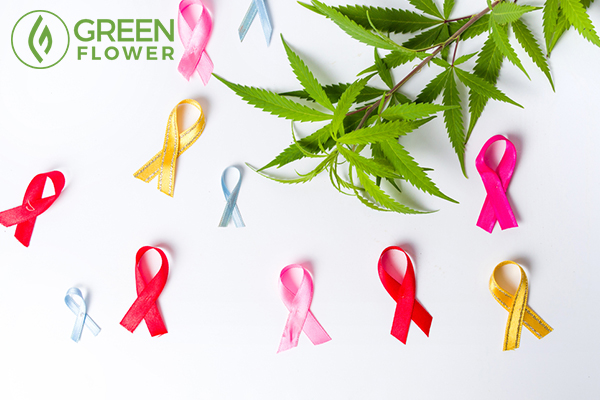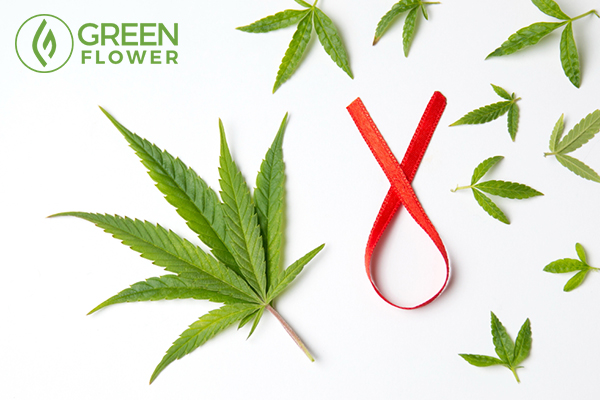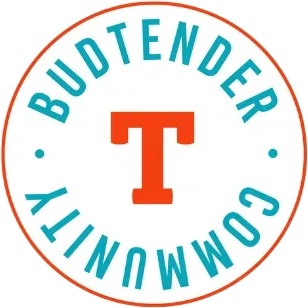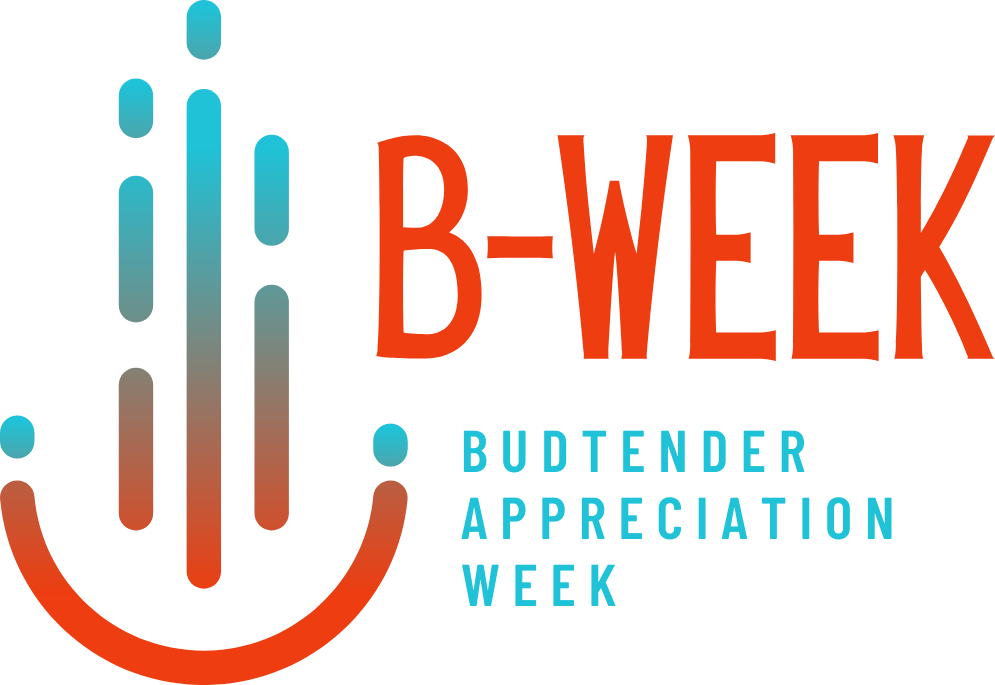
Mara Gordon has not been sheltered from cancer.
“Cancer is very personal to me,” she begins.
“In 1979, I lost my first husband to osteogenic sarcoma. In 1989 I lost my mother to lung cancer. I, then two years later, lost my brother in law to a brain tumor, and then I lost my sister to lung cancer […] you’ll see that I have my motivations.”
After experiencing over two decades of close cancer deaths, Gordon co-founded Aunt Zelda’s in 2011.
Aunt Zelda’s is an organization that both works with patients and develops cannabis-based medicines for the treatment of diseases like cancer and chronic pain.
In their six years of operation, Gordon and her team have worked with thousands of patients in developing effective medical cannabis treatments.
It’s safe to say, Gordon knows a thing or two about cannabis and chronic disease.
In an exclusive Green Flower session, Gordon discusses the hows and whys of medical cannabis treatment for cancer.
A vital watch for any cancer patient or concerned family member, Gordon’s course discusses how cannabis treatments are dosed, why the herb is effective for cancer, and successes she’s had in her years as a medical cannabis advocate, educator, and healer.
Why cannabis works for cancer

Let’s be honest. Based on decades-long legal and political barriers to cannabis cultivation and research, there have been far too few human trials on cannabis as a cancer treatment.
Still, many find it surprising how much research does exist when it comes to scientific evidence that cannabis compounds can have a major impact on cancer.
In the lab, a wealth of early preclinical and animal trials have demonstrated that cannabis compounds may treat cancer in a number of different ways.
These different ways include the blocking a tumor’s ability to create blood vessels, essentially starving the cancer. It also includes decreased metastasis, when tumor cells break off and travel to different parts of the body.
Finally, cannabis compounds have been shown to halt the growth of tumor cells and trigger these diseased cells to self-destruct.
How does this happen?
“We’re all very familiar with the fact that cannabinoids, like THC, et cetera, can be used for the oncological pain, for the side effects of chemotherapies, like nausea, vomiting, appetite, even decreased hair loss in some cases,” explains Gordon.
“[…] The cannabinoids will help with the basic problems that people have as a result of the standard of care, chemotherapies, radiation, et cetera, but it also interferes with the tumor progression.”
Cannabinoids, a term for a special class of active chemical constituents in the cannabis plant, engage with special landing sites on the surface of cancer cells, called cannabinoid receptors.
While cannabinoid receptors are present throughout the body, Gordon explains that they are most abundantly expressed on demand after stress or injury.
Normally, these cell receptors respond to your body’s own version of cannabis compounds, called endocannabinoids.
Yet, for some reason, cancer cells just aren’t getting the right messages.
In the case of cancer cells, laboratory research suggests that these diseased cells actually demonstrate increased amounts of cannabinoid receptors.
When connected with cannabinoid receptors, the cannabinoids found in cannabis then relay chemical signals to the cell, triggering the cancer cells to self-destruct.
This not only halts tumor growth but, as many Aunt Zelda’s patients suggest, may actually shrink tumors in some instances.
Getting the right dose of cannabis for cancer

If one thing is crucial to success with medical cannabis for cancer, it’s dosage.
Unfortunately, finding the right dosage is something that can be extremely difficult to try on your own.
Rather, working with a cannabis-savvy professional can mean the difference between surviving and failing when it comes to treating cancer with cannabis.
Why is dosage so complicated?
Cannabis is a complex plant capable of producing over 400 different chemical compounds.
Different cannabis plants represent different chemovars, meaning that they produce varying chemical constituents depending on the plant’s environment and genetics.
As it turns out, it’s the harmony between these compounds that produce unique health effects.
When it comes to cannabis for cancer, different combinations of cannabis phytochemicals may work better in fighting a particular patient’s cancer than others.
While emerging preclinical, animal and experimental research suggests that some combinations of cannabis compounds may be beneficial for specific types of cancer, finding the right ratios and dosages of cannabis medicines is an individualized task from person to person.
While a high-THC cannabis extract may work well for one individual, a high-CBD solution may work better in another.
Gordon goes into further detail on exactly just how customizable cannabis medicines really are.
For example, she explains, “maybe it’s not the right cannabinoid terpene combination. Maybe in your case, we need to change the timing of it, maybe we need to change the route of administration.”
She continues, “It’s frightening because it’s a complex medicine, it shouldn’t be frightening because you have to customize it.”
“Really, all medicine is customized medicine. Otherwise, we wouldn’t need so many different drugs in every category, right?”
To use an example from Aunt Zelda’s, Gordon notes:
“We have a breast cancer patient who is 35 years old and 30 milligrams of THC and 15 milligrams of CBD was all it took to get her having cancer cells starting apoptosis, started having lower rates of metastasis, it stopped all the growth, her blood work was all normal, fantastic.”
On the other hand, other individuals may need significantly higher doses and different ratios of cannabis compounds in order to treat disease.
Some of Gordon’s other clients, for instance, require over 800 milligrams of cannabinoid medicines to improve their cancer.
But, what if you’re current regime doesn’t work?
“You have to keep experimenting,” she insists.
Gordon is quick to articulate that just because a lower dose or a “standard dose” doesn’t work for you, it does not mean that the cannabis medicines don’t work at all. It means that you may need to keep experimenting, trying to find the right combination to meet your individual needs.
“You flip [the protocol] around, you talk to your provider, you talk to your doctor, you talk to us at Aunt Zelda’s if we happen to be fortunate enough to be taking care of you,” says Gordon.
Cannabis isn’t a miracle, it’s science

While it may seem miraculous, there are valid scientific reasons why cannabis has an effect on cancer.
Yet, Gordon and her team are quick to say that the herb does not, in fact, cure anything.
“We don’t use the word ‘cure’,” says Mara, “because we believe that it’s a systemic disease that develops within the body, and that if you do not continue to maintain some sort of treatment over time then it will, in fact, come back.”
As mentioned above, cannabis can kill tumor cells by taking the place of chemical compounds (endocannabinoids) that the body produces naturally.
For cancer treatments to stick, caring for the continued health of that system and the body as a whole is vital.
“Like other things, you can’t just stop taking [cannabis], go back to your previous lifestyle, your previous diet, your previous levels of stress and expect to maintain a disease-free state.”
Gordon states that medical cannabis patients require maintenance doses of cannabis compounds, incorporating small amounts of the herb into everyday life.
“The situation that got you to the disease in the first place is still there,” says Gordon, “unless you do something to change your life.”
Medical cannabis isn’t always easy

Making the decision to use medical cannabis isn’t always easy.
To cancer patients, time is of the essence.
Opting for medical cannabis as a treatment for cancer is a major decision, one which goes against conventional scientific thought, and one with little officially recognized success.
Yet, for many, medical cannabis is worth the risk. At least, so long as it is done safely and in an informed way.
“One of the things when you’re having a discussion with your doctor and you’re making the decision about whether or not you’re going to include cannabis in your treatment,” begins Gordon…
“…is that you have to make a decision, and that’s the patient’s right and the family’s together to make this decision, and that is whether you’re going to look at cannabis as something that you use to simply manage the side effects of conventional treatments or whether or not you’re going to go for it and say ‘you know what? I’m going to see if this can actually kill my cancer.”
Interested in learning more about treating cancer with cannabis? Gordon’s video with Green Flower is a must-watch for anyone interested in learning more about this healing plant.
– This article was originally posted at Green Flower
About CannabisNewsWire
CannabisNewsWire (CNW) is an information service that provides (1) access to our news aggregation and syndication servers, (2) CannabisNewsBreaks that summarize corporate news and information, (3) enhanced press release services, (4) social media distribution and optimization services, and (5) a full array of corporate communication solutions. As a multifaceted financial news and content distribution company with an extensive team of contributing journalists and writers, CNW is uniquely positioned to best serve private and public companies that desire to reach a wide audience of investors, consumers, journalists and the general public. CNW has an ever-growing distribution network of more than 5,000 key syndication outlets across the country. By cutting through the overload of information in today’s market, CNW brings its clients unparalleled visibility, recognition and brand awareness. CNW is where news, content and information converge.
To receive instant SMS alerts, text CANNABIS to 21000 (U.S. Mobile Phones Only)
For more information please visit https://www.cannabisnewswire.com
Please see full terms of use and disclaimers on the CannabisNewsWire website applicable to all content provided by CNW, wherever published or re-published: http://CNW.fm/Disclaimer
Do you have a questions or are you interested in working with CNW? Ask our Editor
CannabisNewsWire (CNW)
Denver, Colorado
www.cannabisnewswire.com
303.498.7722 Office
Editor@CannabisNewsWire.com
This article contains Third-Party Content submitted by third parties, including articles submitted through the CNW Premium Partnership Program. All opinions, statements and representations expressed by such third parties are theirs alone and do not express or represent the views and opinions of CNW or its affiliates and owners. Content created by third parties is the sole responsibility of such third parties, and CNW does not endorse, guarantee or make representations concerning the accuracy and completeness of all third-party content. You acknowledge that by CNW providing you with this internet portal that makes accessible to you the ability to view third-party content through the CNW site, CNW does not undertake any obligation to you as a reader of such content or assume any liability relating to such third-party content. CNW expressly disclaims liability relating to such third-party content. CNW and its members, affiliates, successors, assigns, officers, directors, and partners assume no responsibility or liability that may arise from the third-party content, including, but not limited to, responsibility or liability for claims for defamation, libel, slander, infringement, invasion of privacy and publicity rights, fraud, or misrepresentation, or an private right of action under the federal securities laws of the United States or common law. Notwithstanding the foregoing, CNW reserves the right to remove third-party content at any time in its sole discretion.



















